Related Research Articles

Arthur Neville Chamberlain was a British politician who served as Prime Minister of the United Kingdom from May 1937 to May 1940 and Leader of the Conservative Party from May 1937 to October 1940. He is best known for his foreign policy of appeasement, and in particular for his signing of the Munich Agreement on 30 September 1938, ceding the German-speaking Sudetenland region of Czechoslovakia to Nazi Germany led by Adolf Hitler. Following the invasion of Poland on 1 September 1939, which marked the beginning of the Second World War, Chamberlain announced the declaration of war on Germany two days later and led the United Kingdom through the first eight months of the war until his resignation as prime minister on 10 May 1940.

Sir Edward Richard George Heath, commonly known as Ted Heath, was a British politician who served as Prime Minister of the United Kingdom from 1970 to 1974 and Leader of the Conservative Party from 1965 to 1975. Heath also served for 51 years as a Member of Parliament from 1950 to 2001. Outside politics, Heath was a yachtsman, a musician, and an author.

Michael Ray Dibdin Heseltine, Baron Heseltine, is a British politician. Having begun his career as a property developer, he became one of the founders of the publishing house Haymarket. Heseltine served as a Conservative Member of Parliament from 1966 to 2001. He was a prominent figure in the governments of Margaret Thatcher and John Major, and served as Deputy Prime Minister and First Secretary of State under Major.
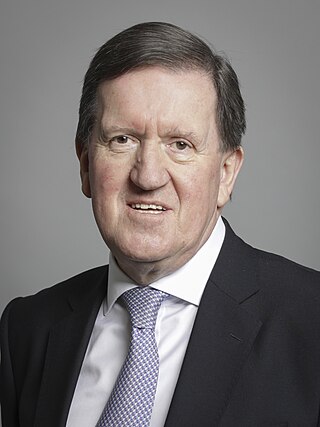
George Islay MacNeill Robertson, Baron Robertson of Port Ellen is a British politician of the Labour Party who was the 10th Secretary General of NATO from 1999 to 2003; he succeeded Javier Solana. He was Secretary of State for Defence from 1997 to 1999, before becoming a life peer as Baron Robertson of Port Ellen, of Islay in Argyll and Bute, on 24 August 1999.
The Link was established in July 1937 as an "independent non-party organisation to promote Anglo-German friendship". It generally operated as a cultural organisation, although its journal, the Anglo-German Review, reflected the pro-Nazi views of Barry Domvile, and particularly in London it attracted a number of antisemites and pro-Nazis. At its height the membership numbered around 4,300.
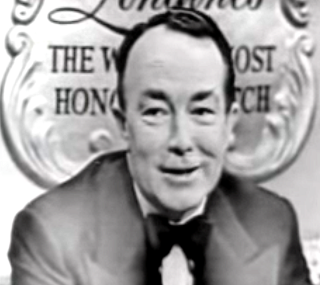
Hartley William Shawcross, Baron Shawcross,, known from 1945 to 1959 as Sir Hartley Shawcross, was an English barrister and Labour politician who served as the lead British prosecutor at the Nuremberg War Crimes tribunal. He also served as Britain's principal delegate to the United Nations immediately after the Second World War and as Attorney General for England.

Sir Malcolm Leslie Rifkind is a British politician who served in the cabinets of Margaret Thatcher and John Major from 1986 to 1997, and most recently as chair of the Intelligence and Security Committee of Parliament from 2010 to 2015. He is also known for his advocacy of a pro-European stance within his party's policies.

Richard Burdon Haldane, 1st Viscount Haldane, was a British lawyer and philosopher and an influential Liberal and later Labour politician. He was Secretary of State for War between 1905 and 1912 during which time the "Haldane Reforms" of the British Army were implemented. As an intellectual he was fascinated with German thought. That led to his role in seeking detente with Germany in 1912 in the Haldane Mission. The mission was a failure and tensions with Berlin forced London to work more closely with Paris.
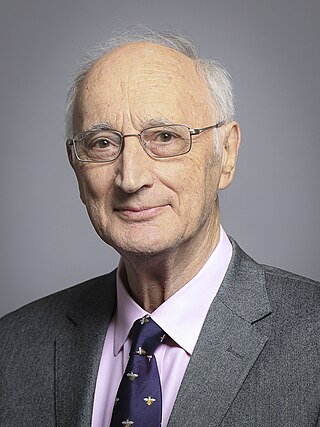
George Samuel Knatchbull Young, Baron Young of Cookham,, known as Sir George Young, 6th Baronet from 1960 to 2015, is a British Conservative Party politician who served as a Member of Parliament (MP) from 1974 to 2015, having represented Ealing Acton from 1974 to 1997 and North West Hampshire from 1997. He has served in Cabinet on three occasions: as Secretary of State for Transport from 1995 to 1997; as the Leader of the House of Commons and Lord Privy Seal from 2010 to 2012; and as Conservative Chief Whip from 2012 to 2014.

Sir Bernard Ingham was a British journalist and civil servant. He was Margaret Thatcher's chief press secretary throughout her time as Prime Minister of the United Kingdom from 1979 to 1990.
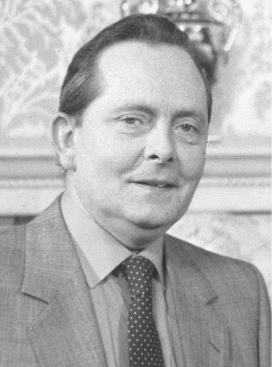
Alastair Brian Walden was a British journalist and broadcaster who spent over a decade as a Labour politician and Member of Parliament (MP). He was considered one of the finest political interviewers in the history of British broadcasting, tenacious and ruthless. He won awards for broadcasting including the BAFTA Richard Dimbleby Award for television in 1986, and in 1991 was named ITV Personality of the Year. He was known for interviews of politicians, especially Margaret Thatcher. He was said to be her favourite interviewer, although he gave her tough interviews.
General Sir Walter Colyear Walker, was a senior British Army officer who served as Commander-in-Chief of Allied Forces Northern Europe from 1969 until his retirement in 1972. He commanded the 4/8th Gurkhas Rifles against the Japanese Army in Burma during the Second World War. He commanded the 1/6 Gurkha Rifles from 1950 to 1953 and he commanded the 99th Gurkha Infantry Brigade Group from 1957 to 1959 during the Malayan Emergency. Walker was Director of Operations in Borneo from 1962 to 1965 during the Indonesia-Malaysia confrontation. In retirement, he attracted some controversy by publicising his views on the political situation in Britain during the mid-1970s.
Western Goals Institute (WGI) was a far-right pressure group and think-tank in Britain, formed in 1989 from Western Goals UK, which was founded in 1985 as an offshoot of the U.S. Western Goals Foundation. It was anti-communist and opposed non-white immigration.
The British People's Party (BPP) was a British far-right political party founded in 1939 and led by ex-British Union of Fascists (BUF) member and Labour Party Member of Parliament John Beckett.
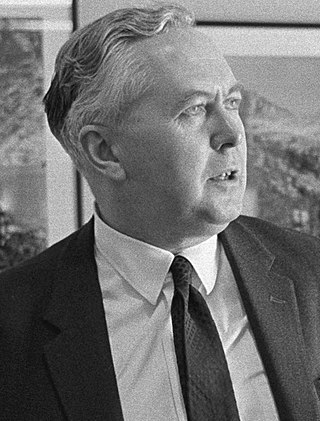
Since the mid-1970s, a variety of allegations have emerged regarding British Labour Prime Minister Harold Wilson, who served as the prime minister of the United Kingdom from 1964 to 1970 and 1974 to 1976. These range from Wilson having been a Soviet agent, to Wilson being the victim of treasonous plots by conservative-leaning elements in MI5 and the British military, claims which Wilson himself made.
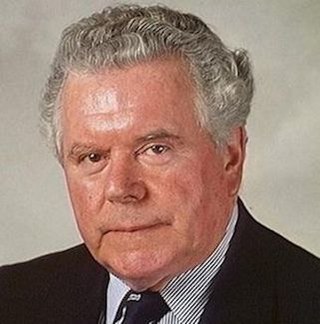
Sir Dudley Gordon Smith was a British Conservative politician who served as a junior minister under Edward Heath. He was a Member of Parliament for a total of 35 years, latterly for Warwick and Leamington, which he represented for almost 30 years before he lost his seat in the Labour landslide in the 1997 general election.

General David Julian Richards, Baron Richards of Herstmonceux, is a retired senior British Army officer and Peer who was formerly the Chief of the Defence Staff, the professional head of the British Armed Forces. He succeeded Air Chief Marshal Sir Jock Stirrup in this role on 29 October 2010.
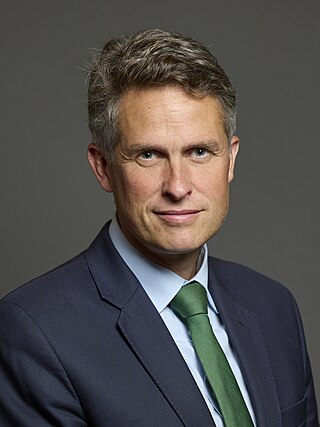
Sir Gavin Alexander Williamson is a British politician who served in various Cabinet positions under Prime Ministers Theresa May, Boris Johnson and Rishi Sunak between 2016 and 2022, lastly as Minister of State without Portfolio from 25 October to 8 November 2022 under Sunak. A member of the Conservative Party, he has been the Member of Parliament (MP) for Stone, Great Wyrley and Penkridge, formerly South Staffordshire, since 2010. Williamson previously served as Government Chief Whip from 2016 to 2017 and Secretary of State for Defence from 2017 to 2019 under May, and as Secretary of State for Education from 2019 to 2021 under Johnson.

Sir Gerald Bernard Kaufman was a British politician and author who served as a minister throughout the Labour government of 1974 to 1979. Elected as a member of parliament (MP) at the 1970 general election, he became Father of the House in 2015 and served until his death in 2017.
References
- 1 2 Sandbrook, Dominic (2013). Seasons in the sun : the battle for Britain, 1974-1979. London, England: Penguin. ISBN 9781846146275.
- ↑ "Obituary: General Sir Walter Walker". Daily Telegraph. 13 August 2001. Archived from the original on 30 May 2010. Retrieved 12 April 2022.
Books
- Pinochet in Piccadilly: Britain and Chile's Hidden History by Andy Beckett (Faber and Faber, 2003) ISBN 0-571-21547-5